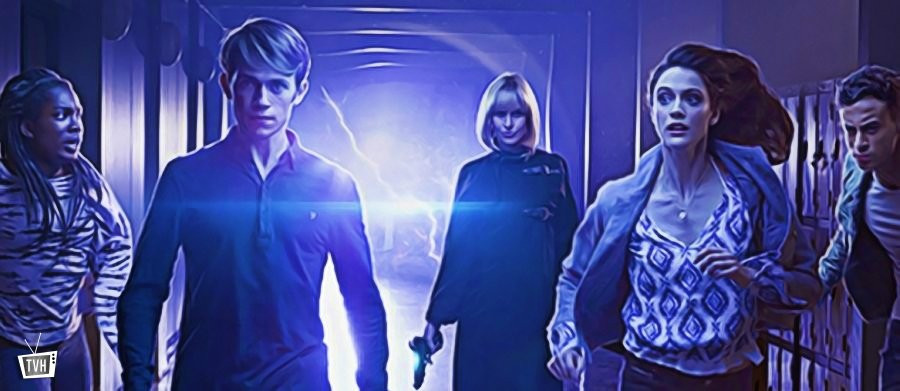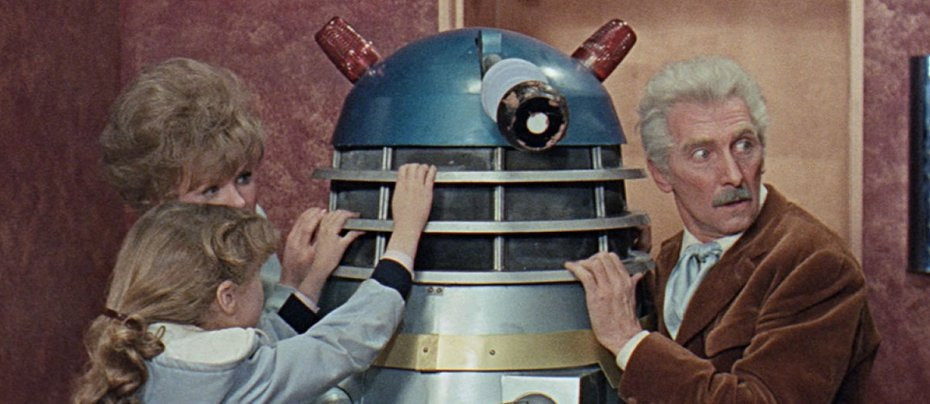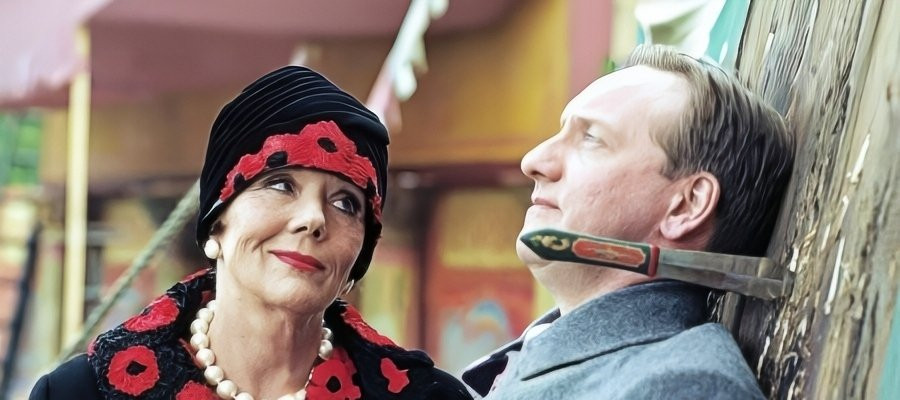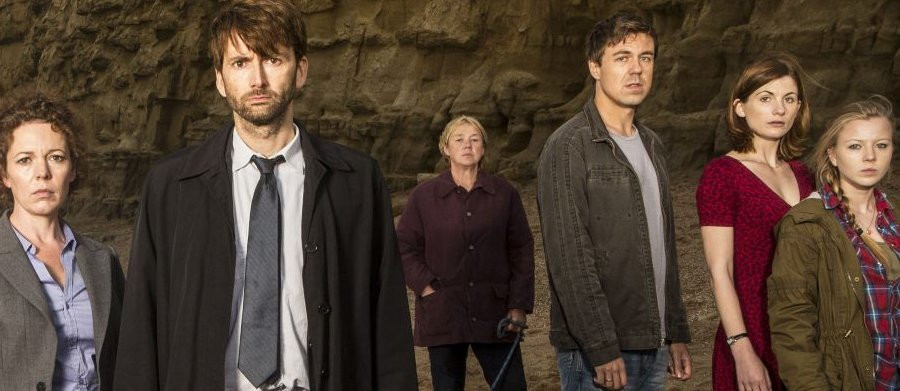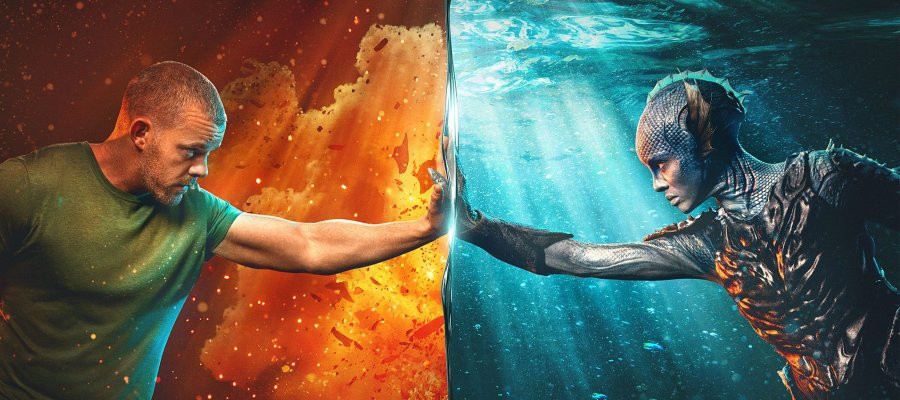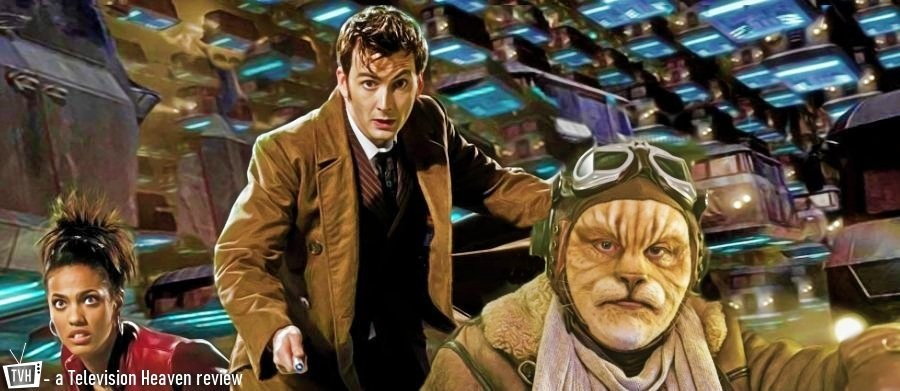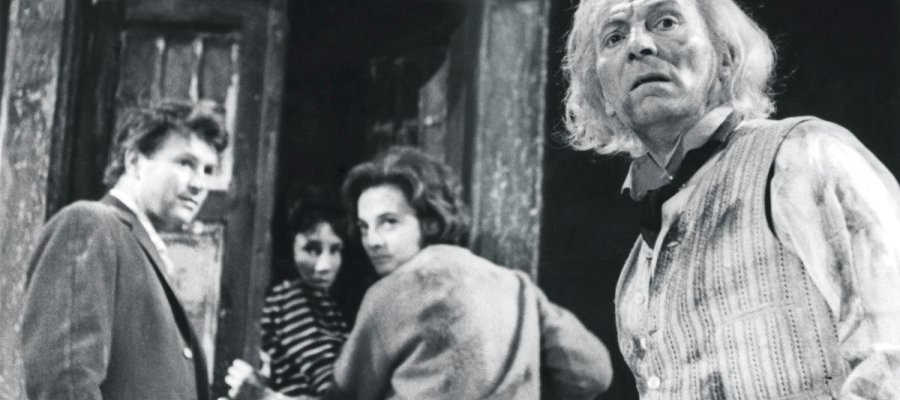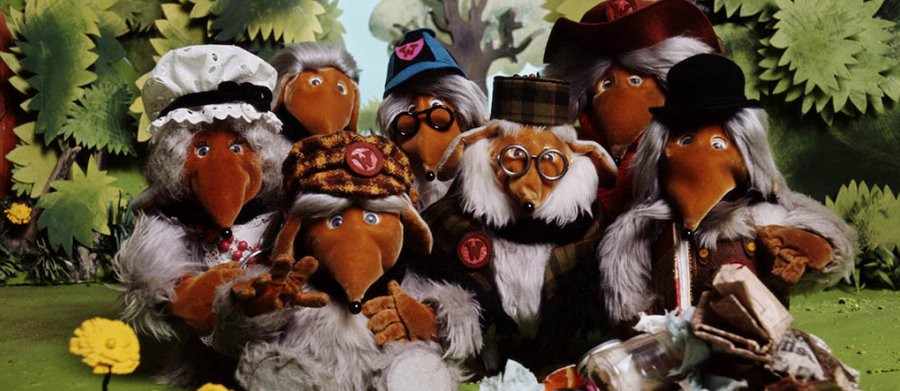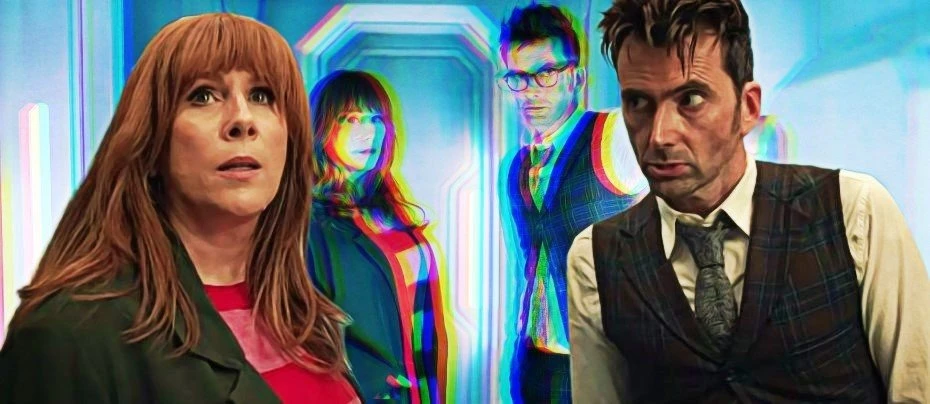
Wild Blue Yonder
The TARDIS takes the Doctor and Donna to the furthest edge of the universe. To escape, they must face the most desperate fight of their lives...
Review by Daniel Tessier
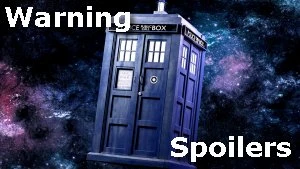
The middle episode of Doctor Who’s three sixtieth anniversary specials is a deeply unsettling, inventive and unexpectedly slimmed-down story. The secrecy around its content led many fans to assume there would be some manner of exciting reveal or a character making a surprise return. Instead, the secrecy served to maintain the surprises of the story itself, giving us the one episode in which we had no idea what to truly expect. Understandably, some viewers were disappointed by this, although no event episode can ever quite live up to fan hopes and expectations. While the episode we got might not have felt much like a special, it was indeed something rather special.
What stands out about Wild Blue Yonder is just how little there is to it. Aside from the opening and closing scenes, the cast is comprised of only David Tennant and Catherine Tate, fulfilling two roles each, in an isolated location. Even the location is limited, being made up from a handful of claustrophobic sets and a vast central area that was rendered digitally. This allows for some freedom in creating uncanny effects, which, while deeply disquieting, are perhaps not used to their fullest extent. Still, this is an occasion where maybe less is more, and using the effects sparingly is the more effective way to create a new and alien environment.
With the TARDIS still careering out of control, the Doctor and Donna are dropped into a huge, cavernous spacecraft. Naturally, the Doctor can’t resist wandering off in spite of the potential danger and Donna’s reluctance to leave the TARDIS. In this respect, at least, the episode perfectly evokes the history of the programme; the Doctor’s been behaving like that since the very beginning. (At least he didn’t fake the TARDIS’ damage; viewers of the revamped The Daleks in Colour will see how he used to play it.) The TARDIS dematerialises due to the HADS (the Hostile Action Displacement System, another callback), running away from whatever danger it has sensed and leaving the travellers stranded.
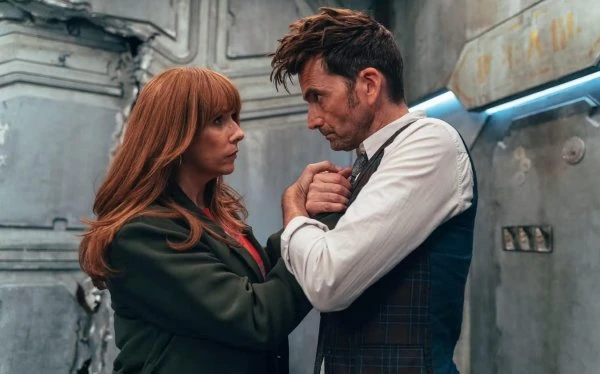
The Doctor’s universe has been populated with so many forms of time and space travel by now that this is, potentially, not such a problem as it might first appear, but this situation is unusually dire. The ship is stranded at the very edge of the universe, beyond matter, light and energy, at the cusp of a dangerous nothingness. There’s simply no getting home, something which immediately horrifies Donna and even unsettles the Doctor. We’ve had occasional glimpses of the Doctor being up against the truly unknown, and his lack of knowledge is clearly both frightening and exhilarating for him. Donna, on the other hand, is faced with the possibility of never seeing her family again, leaving them to wait for her indefinitely. Still, the Doctor isn’t wrong when he points out that Donna took little convincing to go and explore, and she rapidly adjusts to the situation.
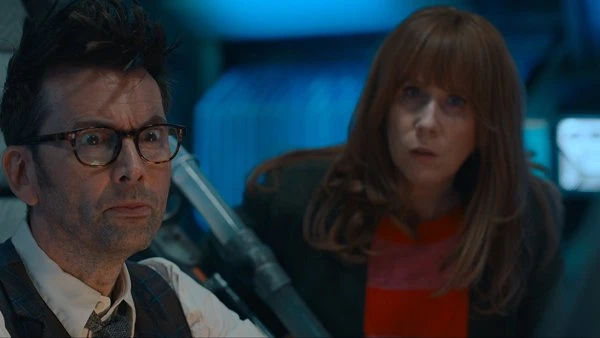
Tate is excellent as the older Donna. Over these two episodes so far, she’s been recognisably the same brash, no-nonsense London temp, but she also displays a maturity and level-headedness we’ve seen little of before. The same is true of the Doctor. Last week I said there was little to separate the Fourteenth Doctor from the Tenth in terms of Tennant’s performance, but this episode, with more time to spend simply in the characters’ company, allows both of them to show how they’ve changed. The new Doctor shares many of the mannerisms of his earlier self, but he’s more patient, more emotionally attentive, and humbler. He and Donna come across as genuine old friends here; happy in each other’s company, sharing humour, sniping at each other good-naturedly and occasionally coming to genuinely cross words, but dealing with it reasonably. It’s a world away from the clash of personalities way back in 2006.
Given the time spent in just the two leads’ company, and the amount of it used to simply talk and explore their feelings, we learn some interesting things about the Doctor. While the more reactionary are spinning around at the Doctor’s apparent attraction to men in this incarnation, the more interesting stuff comes as he opens up about his guilt over the damage done to the universe by the Flux. This, and the confirmation that the Doctor’s origins are ultimately unknown, refute the idea that Russell T. Davies would jettison the events of Chris Chibnall’s tenure, specifically the revelation of The Timeless Children and the universe-shattering events of Flux. That said, Davies delivers more revealing and real exploration of their effect on the Doctor in five minutes of dialogue than Chibnall did over a season’s worth of episodes.
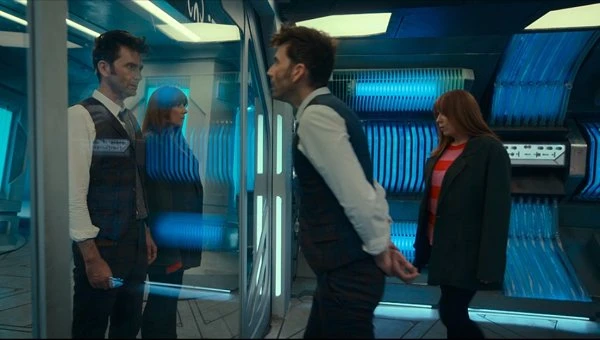
Of course, much of the dialogue in the episode isn’t between the Doctor and Donna, but between them and their respective duplicates. The edge of the universe is home to some terrifying things, it seems, with no form or thought of their own, and desperate to have ours. The idea of a being that is slowly refining its appearance and responses until it’s a perfect copy of you isn’t entirely original, of course – it crops up in all manner of science fiction and fantasy settings – but remains chilling. Tennant and Tate are both brilliant as the copies of the Doctor and Donna, giving subtly different performances when we’re not meant to be certain of their identities, and becoming distressingly malicious when the cat’s out of the bag.
The creatures’ warping forms skirt that thin line between frightening and ridiculous. It’s a safe level of body horror for family viewing – tea-time terror for tots – but it’s nonetheless uncanny enough to truly unsettle if it hits you the right way. (It certainly worked on me.) The physical effects, of grotesquely disproportionate limbs and so on, works better than the CGI elements, which unfortunately come off as a little cheap looking. That is an unfortunate issue with the effects all round; this is clearly the cheap episode, and while the Disney money has obviously been spent well, BBC programming is never going to hold up against the quality of Disney’s own effects-heavy material.
Isn’t that, though, rather the point of Doctor Who? If there’s one thing this series has shown us over the years, is that there’s nothing wrong with ambition exceeding ability from time to time. Wild Blue Yonder crafted a story that focused almost entirely on two actors in a white corridor and elevated it to a slice of existential horror that, albeit briefly, genuinely convinced us that the heroes might not both survive this one. Given that we know they’re both coming back next week, that’s no mean feat at all.
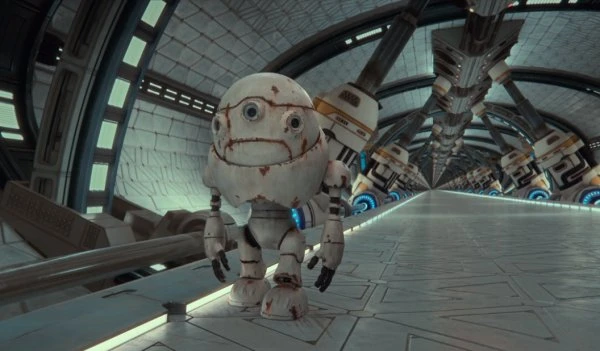
There are a few other elements on the alien ship, though. The little robot, which ties in so simply yet effectively to the plot, is a cute little critter, although the long-dead pilot of the ship, a simple yet effective and refreshingly non-humanlike creature, better fits the strange and unsettling nature of the story. The organic elements of the ship, which the Doctor, perfectly in character, insisted on tasting, were fun as well. It would be funny if it turns out they were poisonous after all, and that’s what leads him to regenerate next week.
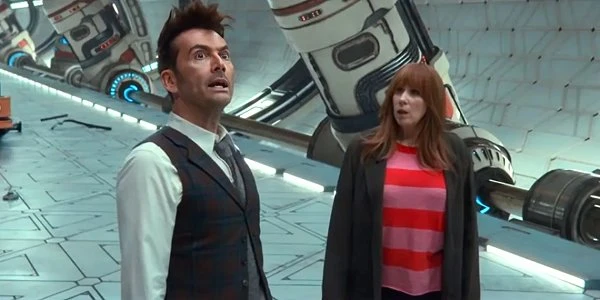
In spite of the strength of the material in the main story, it’s the bookends that will provoke the most comment. The cliffhanger ending, which will lead us into the grand finale, is slim in itself but will be remembered fondly as the last appearance of Bernard Cribbins as Wilfred Mott. Cribbins, to whom the episode is dedicated, did his very last filming for this episode, which unfortunately had to be cut down due to his health. A brief reunion by necessity, it’s a joyful one and it’s quite right that such a beloved figure makes one last appearance, particularly since Cribbins has been with Doctor Who almost since the beginning (he played companion Tom in the feature film Daleks: Invasion Earth 2150 AD in 1966).
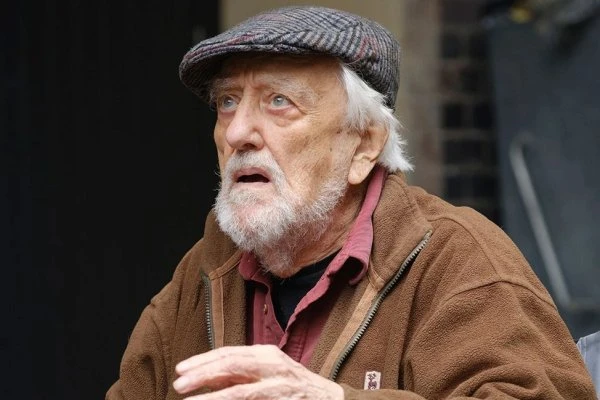
At the other end of the episode, we had a very brief run-in with Isaac Newton, on the day of his fateful apple encounter. There’s already been a great deal of comment, not all of it civil, about the casting of Nathaniel Curtis as the young Newton. Most likely it was nothing more than Davies wanting to cast his It’s a Sin star in a brief role, but the incongruity of having an actor of colour play the historic English scientist has caused a stir. It’s hardly worth worrying about, for what amounts to a throwaway gag.
Or is it? The episode continued with the Doctor and Donna repeatedly substituting gravity for “mavity,” which at first just seems like them taking the mick… until you realise, of course, that they had no chance to hear Newton get the word wrong in the first place. Is this, perhaps, a hint that they have made a genuine change to history? Given that the Doctor is also concerned with his introduction of superstition to the edge of space, it’s tempting to wonder if the seeds of something are being sown. There’s also the question of just why the TARDIS chose to play “Wild Blue Yonder” in the first place, other than to provide this episode with an opaque title. Was it simply a chance for Davies to address a pet peeve, and correct people on the nature (and the name) of the song? Or was the TARDIS playing a war song for a reason? While the episode appears to be very much self-contained, there could well be fallout yet to come.



